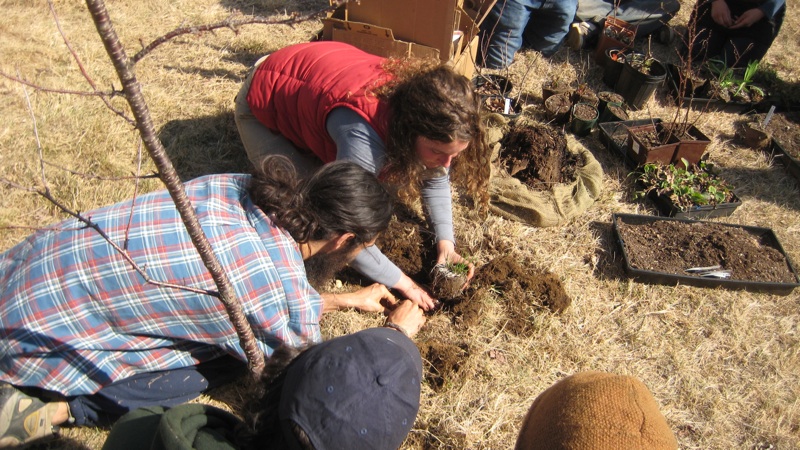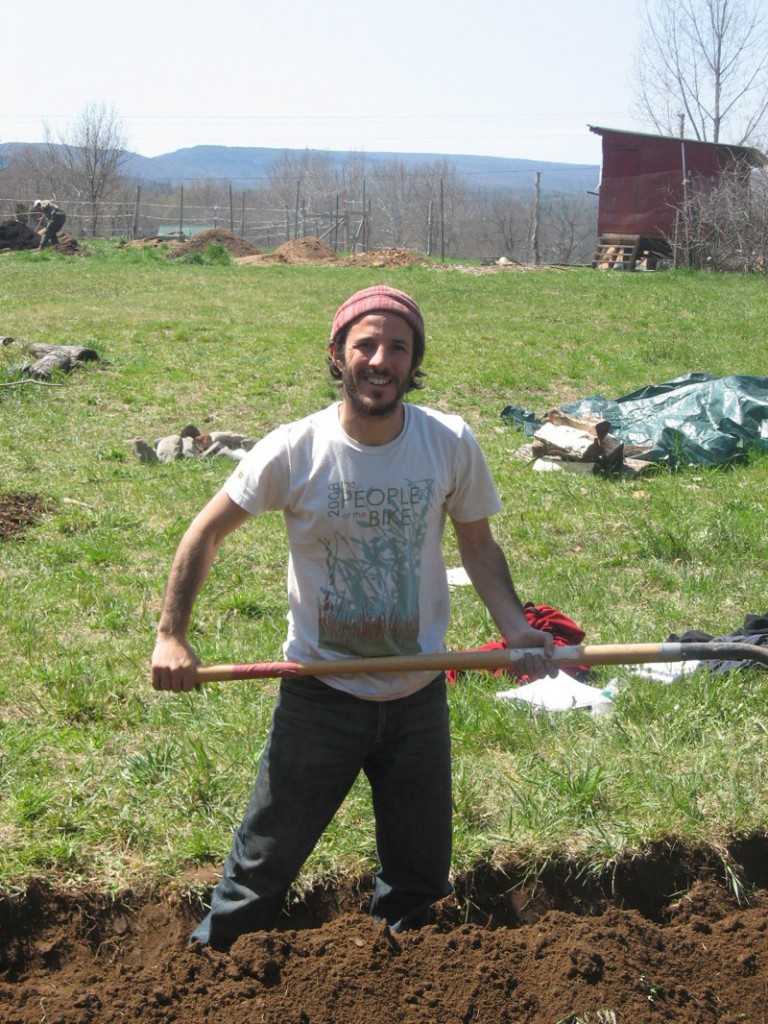Although a fringe movement elsewhere, approved it’s booming in Maine.
By Tom Atwell (Originally published in the Portland Herald Press)
Permaculture design – landscapes developed to be useful, to sustain both the gardener and the land – may be a fringe movement, but it is the fastest-growing segment in the plant industry, according to Dale Hendricks, founder of North Creek Nurseries in Pennsylvania.
He compared the status of permaculture today to an eccentric-seeming gardening push in the 1980s that touted the cultivation of more native plants. At the time, many gardeners summed up that movement as the ideas of “a few crazies,†Hendricks recalled in a February lecture in Boston for New England Grows. “But now that fringe group has become almost mainstream.â€
Similarly, “Permaculture…may be on the fringe now, but it is coming into its own.â€
In Maine, the permaculture boom is already here.
The Resilience Hub, a nonprofit group in Portland promoting permaculture design, has 1,700 members, holds 50 to 60 events a year and helps people translate the principles of permaculture design to their homes, said Lisa Fernandes, the director who helped found the group in 2005. For one annual event, the “permablitz,†Hub members and others spend a day transforming someone’s property into a permaculture site.
Fernandes defined permaculture as “a design method based on ecological patterns. It is something you use rather than something you do.â€
Ethan C. Roland of AppleSeed Permaculture in Stone Ridge, N.Y., who also lectured at New England Grows, defined it a little differently. “Permaculture design mimics the diversity, stability and permanence of natural systems,†he said.
What do these definitions mean in practise?
Permaculture, which is a contraction for “permanent agriculture,†attempts to minimize the outside elements brought onto a property, such as energy, water and raw materials from distant places. It also works to minimize the waste that leaves the property. It encompasses composting, rooftop solar panels, rainwater collection and vegetable gardens. A favorite vegetable garden mix among permaculture practioners is the so-called “three sisters,†the combination of crops that native tribes taught the Pilgrims to plant – corn, pole beans, and squash. The plants work together, and they make efficient use of space; the beans climb the corn, and the squash keeps the weeds down and the roots cool. These three happen to be native plants, but users of permaculture are more interested in how useful plants are than where they come from. They will grow native fruits, such as blueberries, elderberries and the paw paw tree, and non-natives, such Chinese chestnuts, which are resistant to chestnut blight; apple and peach trees, which have been grown in America for generations but are not native, and the Siberian pea shrub, which produces in a small space and improves the soil. Animals have a role to play in permaculture, too. Chickens, for example, provide eggs (and perhaps meat) for eating, as well as manure to fertilize the soil. They eat ticks that can spread disease and help mix up ingredients in the compost pile.
“When you walk into a well-designed permaculture garden, all the elements clearly work together,††Fernandes said. “There is biological diversity and a really heavy yield, whether that yield is food, flowers or herbs. There is a palpably different level of energy.â€
Roland believes the Earth is sick, with climate change causing ever more storms, and many species going extinct or disappearing from their traditional ranges.
“Sustainable is not enough,†he said. “We have to go beyond sustaining to increasing the health of ecological systems. We need to heal the damage that has been done.â€
You can start on that important work yourself by employing the practices of permaculture at your home. And you could well be part of the next big trend.
To schedule a consultation with AppleSeed Permaculture and get started, contact us now.




